CSDE Science Core – Upcoming Workshops: Biomarkers, Statistics & R, Online Surveys & REDCap, Accessing Federal Data
|
In the upcoming quarter, CSDE will be hosting four workshops and one ‘lunch and learn’ event to facilitate researchers’ adoption of new methods and data to accelerate research programs. These workshops include an overview of portable biomarker data collection in the field, accessing federal statistical data, developing online surveys using REDCap, conducting statistical analysis with R, and an introduction to data options for research on older adults.
Each quarter, CSDE offers 3-5 workshops on data sources, statistical and biomarker methodology, introductions to analysis programs, and more, all given by CSDE staff and faculty affiliates. These workshops can include hands-on training in novel methods and programming, lectures on innovative data sources, and discussions of important issues in research and data collection. Over the course of the academic year, CSDE will offer a diverse and exciting set of workshops, some of which will be offered in person and others remotely via Zoom. Students, faculty, and staff are all welcome to register for our workshops and we welcome registrants from outside the University of Washington for our remote workshops as well.
You can find our workshop website and register for our Winter 2024 workshops in the links below. We will be filling in our schedule for Spring workshops soon, so stay tuned!
Please reach out to CSDE’s Training Director, Jessica Godwin (jlg0003@uw.edu), if you have additional workshops you would like to see offered in the future and we will do our best to accommodate those requests.
(Remaining) Winter Workshops
(read more)
|
 |
CSDE Computational Demography Working Group (CDWG) Hosts Connor Gilroy on Methods of Political Forecasting and Career Development (02/28/24)
|
Connor Gilroy, a UW Sociology PhD and machine learning data scientist at Blue Rose Research, will give a general overview of some of the methods and tools he uses in his current political forecasting work. He will also share some background on his recent transition from academia to industry, including the computational research involved in his dissertation on LGBTQ community, his internships and consulting work with Meta and the World Bank, and his experiences navigating the job market. CDWG Will be Hybrid in Winter Quarter 2024. Attend in-person in 223 Raitt or on Zoom (register here).
(read more)
|
 |
CSDE Computational Demography Working Group (CDWG) Hosts David Coomes on Examining the Role of Migration in the Rural Mortality Penalty (3/6/24)
|
David Coomes, a PhD student in the Department of Epidemiology and CSDE T32 Fellow (UW) will join CSDE to discuss his work examining the role of migration in the rural mortality penalty. The rural mortality penalty, in which rural areas have higher age-adjusted mortality rates as compared to more urban areas, has emerged over the last few decades in the US. Previous research has focused on characteristics of rural areas, such as access to healthcare, while little work has paid attention to how the process of migration shapes rural populations and impacts population health measures. This project uses national death records and IRS migration data to measure the association between all-cause mortality and migration by county in the US. CDWG Will be Hybrid in Winter Quarter 2024. Attend in-person in 223 Raitt or on Zoom (register here).
(read more)
|
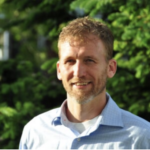 |
Many CSDE-Relevant Grant Opportunities at NICHD!
|
The NICHD has listed many grant opportunities that should be of interest to CSDE affiliates. Check out the list here. If you are interested, CSDE can help you with providing ‘eyes’ for feedback on the narrative, contacting a program officer, more formalized mock review panel of experts to provide feedback on a penultimate draft, a summer grant writing program, or scientific methods consultations. We’re happy to support your science! Just ask!
(read more)
|
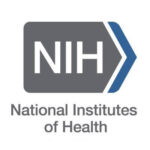 |
CSDE Population Research Planning Grants (PRPGs) (Rolling deadline)
|
Population Research Planning Grants (PRPGs) are designed to provide in-kind support and/or funds of up to $25k* to support a wide array of activity types throughout the development of a research project. As part of our mission to complement rather than duplicate other campus opportunities such as the Population Health Initiative seed grants, we will consider funding a variety of activities. See a list of example activities in the full story!
(read more)
|
 |
CSDE Matching Support to Supplement On-campus Funding (Rolling deadline)
|
CSDE Matching Support includes in-kind or monetary support to accompany a submission to other on-campus funding mechanism, such as PHI, EarthLab, or Urban@UW. All projects must have a CSDE affiliate who is UW faculty and is listed as a PI or co-PI, with any number of other collaborators. Note that we require (PRPGs) or strongly suggest (matching funds) contacting either Development Core Director (Steven Goodreau) or CSDE Director (Sara Curran) to discuss possibilities for your specific proposal before submission.
(read more)
|
 |
Applications open for the Population Health Applied Research Fellowship Program (Info session on 3/4, Applications due 3/29)
|
Applications are now open for the Population Health Applied Research Fellowship Program. This program is run in partnership between the Population Health Initiative and CSDE. The 10-week program is open to graduate and professional students from all UW schools and colleges. The program supports multidisciplinary teams of UW graduate and undergraduate students to work on real-world population health challenges. Projects are sourced from external clients who play an important role in structuring project deliverables.
(read more)
|
 |
*New* Issue of Journal of Ethnic and Migration Studies
Read the newest issue here!
(read more)
Registration Now Open for ICPSR’s Summer Program (sessions available May-Aug. 2024)
|
Registration for the ICPSR Summer Program in Quantitative Methods is now open for their topical workshops and general session. Their general sessions run from June 10-July 5, and from July 8-August 2. Topical Workshops cover a single subject and run for either 20 or 40 hours in just three, five, or ten days, and run from May through August. Sessions and workshops are available online and in-person at the University of Michigan.
(read more)
|
 |
*New* Attend the Inaugural Lunch-and-Learn for UW’s New Center for Disaster Resilient Communities (2/26/24)
|
The UW’s new Center for Disaster Resilient Communities is hosting an inaugural lunch-and-learn session on Monday, February 26, 2024 from 12 – 1 p.m. in the Hans Rosling Center for Population Health and via Zoom. Lunch will be offered for in-person attendees. This event will feature a presentation by Resham Patel (Public Health) and Youngjun Choe (Engineering) regarding current work to develop a regional data ecosystem model for public health emergency preparedness and response. Their presentation will consume roughly half of the hour-long event, with the remaining time set aside for informal networking amongst in-person attendees to help build a more connected disaster research community within the UW. Please see CDRC blog post for more details and a registration link.
(read more)
|
 |
*New* Webinar on The Humanitarian Crisis in Gaza and Public Health Responses (2/26/24)
|
The Department of Global Health is sponsoring a special webinar on Feb 26 to discuss and describe public health responses to the humanitarian crisis in Gaza. The event will be virtual and take place from 11:30-1:00PM. The goal of this webinar panel will be to provide a more detailed understanding to the UW community of the public health aspects of the crisis and the role of global health professionals addressing current and anticipated health needs of the population. Learn more on the event page and register on Zoom here.
(read more)
|
 |
*New* JSDE Seminar: Transportation, Gentrification, and Urban Mobility: The Inequality Effects of Place-Based Policies (2/26/24)
|
Melanie Morten (Stanford) will be presenting in the Joint Seminar in Development Economics. The seminar will take place Monday, February 26 from 11 am to 12:30 pm in person in Savery 410 and on Zoom (link). Morten will discuss place-based policies to transportation and how they affect the poor. Learn more in the full story.
(read more)
|
 |
ICPSR Summer Program Now Accepting Scholarship Applications (Due 2/26/24)
|
The ICPSR Summer Program in Quantitative Methods is now accepting scholarship applications for its 2024 Program, which will take place throughout summer 2024. These scholarships provide registration fee waivers for their General Sessions, a comprehensive methods training program comprising more than 40 courses and lectures, including intro stats, MLE, machine learning, SEM, longitudinal and panel data analysis, theoretical modeling, Bayes, and more. All General Session courses are offered in-person (on the University of Michigan campus in Ann Arbor) and online.
(read more)
|
 |
CSSS Seminar with Donald Chi: Sugared fruit drinks as a sociobehavioral determinant of health in Alaska Native communities (2/28/24)
|
CSSS will host CSDE Affiliate Donald Chi on Wednesday, Feb. 28th at 12:30 in 409 Savery Hall and on Zoom (register here). Donald L. Chi is professor and the Lloyd and Kay Chapman Endowed Chair of Oral Health at the University of Washington School of Dentistry (Seattle, USA) and is Associate Dean for Research. Dr. Chi is Co-Director of the NIH-funded T90/R90 training grant. He is dual board-certified in pediatric dentistry and dental public health. Learn more in the full story!
(read more)
|
 |
Evans Seminar: Dr. LaTonya Trotter on Reimagining Care from Nurses’ Perspective (2/28/24)
|
CSDE Affiliate Dr. LaTonya Trotter (Department of Bioethics and Humanities) will present at the Evans seminar on Wednesday, Feb 28th from 11:30-12:30pm in 360 Parrington Hall. Dr. Trotter’s talk is titled “Reimagining Care: The Pandemic’s Impact on What it Means to be a ‘Good Nurse'”. While many have documented the pandemic’s impact on worker turnover and labor shortages, few have considered the change it may engender for providers and their practices. In this talk, Dr. Trotter will use the experiences of registered nurses to consider the ways in which pandemic experiences were more than an acute stressor, but may portend changed understandings of what it means to be a nurse in terms of crafting a nursing a career and balancing competing obligations in the pursuit of being “a good nurse.”
(read more)
|
 |
Opportunity for funding: French-American Research Collaborations Related to the SDGs (Due 2/29/24)
The Transatlantic Research Partnership aims to encourage innovative research and new collaborations that enrich French-American collaborations, with a view to supporting projects involving young researchers (post-docs, PhDs). Designed to foster forward-looking collaborative research that addresses pressing global challenges, the program supports projects related to one or more United Nations Sustainable Development Goals (SDGs). Selected projects will receive a $20,000 grant, to be shared equally between the French and the American partners over 2 years.
(read more)
Call for Abstracts: The 2024 Add Health Users Conference (Due 2/29/24)
Add Health is now accepting abstracts for the 2024 Add Health Users Conference on Monday, June 17th, and Tuesday June 18th 2024. Any papers using Add Health data are welcome, including those with substantive or methodological topics. Abstracts must be submitted by Thursday, February 29, 2024, at 11:59 p.m. EST. Please use the abstract submission form on the conference website to submit your abstract. For more information, view the full Call for Papers.
(read more)
Applications open for the Michigan Institute for Data Science (Due 2/29/24)
|
The Michigan Institute for Data Science is accepting applications for the 2024 cohort of their “Data and AI Intensive Research with Rigor and Reproducibility” program. With funding from the National Institutes of Health, a multi-university team offers a nationwide program to equip faculty and technical staff in biomedical sciences with the skills needed to improve the rigor and reproducibility of their research, and help them transfer such skills to their trainees. Session 1 will take place at the University of Michigan from June 17-22 and session 2 will take place at Jackson State University from July 28-Aug 2.
(read more)
|
 |
Announcing the next round of the Royalty Research Fund (RRF) (Due 3/4/24)
The Office of Research invites applications to the next round of the Royalty Research Fund (RRF) grant program. Proposals are due to RRF Monday, March 4, by 5:00 PM. Departments and Colleges/Schools may have earlier deadlines, so all applicants are advised to check with their program’s administrative staff. Awards will be announced by June 15, 2024. The purpose of the RRF is to advance new directions in research, particularly:
- In disciplines for which external funding opportunities are minimal.
- For faculty who are junior in rank.
- In cases where RRF funding may provide unique opportunities to increase applicants’ competitiveness for subsequent funding.
(read more)
|
 |
*New* Event on Fostering Connections in AI and Health (3/5/24)
|
The Population Health Initiative is co-hosting a winter quarter Open Space-style event, “Fostering Connections in AI and Health,” on Tuesday, March 5, 2024 from 10 a.m. – 1 p.m. in the UW Husky Union Building (HUB), room 145. The goal of this gathering is to help facilitate new collaborations between UW faculty researchers who are interested in applying generative AI and large language models to pressing health challenges. Those who attend will set the agenda for discussion, offering to convene discussions on possible topics or projects where collaboration is sought. The formal program will be followed by a more informal networking lunch. See the event poster and RSVP at this link to attend.
(read more)
|
 |
Evans Seminar: Dr. Sophia Jordán Wallace from UW’s Dept. of Political Science (3/6/24)
|
The Evans seminar is excited to host a seminar by Dr. Sophia Jordán Wallace (Political Science) on Wednesday, March 6 from 11:30 – 12:30pm in 360 Parrington Hall. Dr. Wallace is a Professor in the Department of Political Science and the Stuart A. and Lee D. Scheingold Endowed Faculty Fellow in Social Justice. She is also the former Director of the Washington Institute for the Study of Inequality and Race (WISIR). Her research interests include the politics of race and ethnicity, Latino politics, immigration politics and policy, public opinion, and legislative politics. Dr. Wallace is currently working on two books: One is entitled, United We Stand: Latino Representation in Congress. The other is called, Immigration Reform: Failure and Success in Congress. Specific talk information will be shared closer to Dr. Wallace's presentation date.
(read more)
|
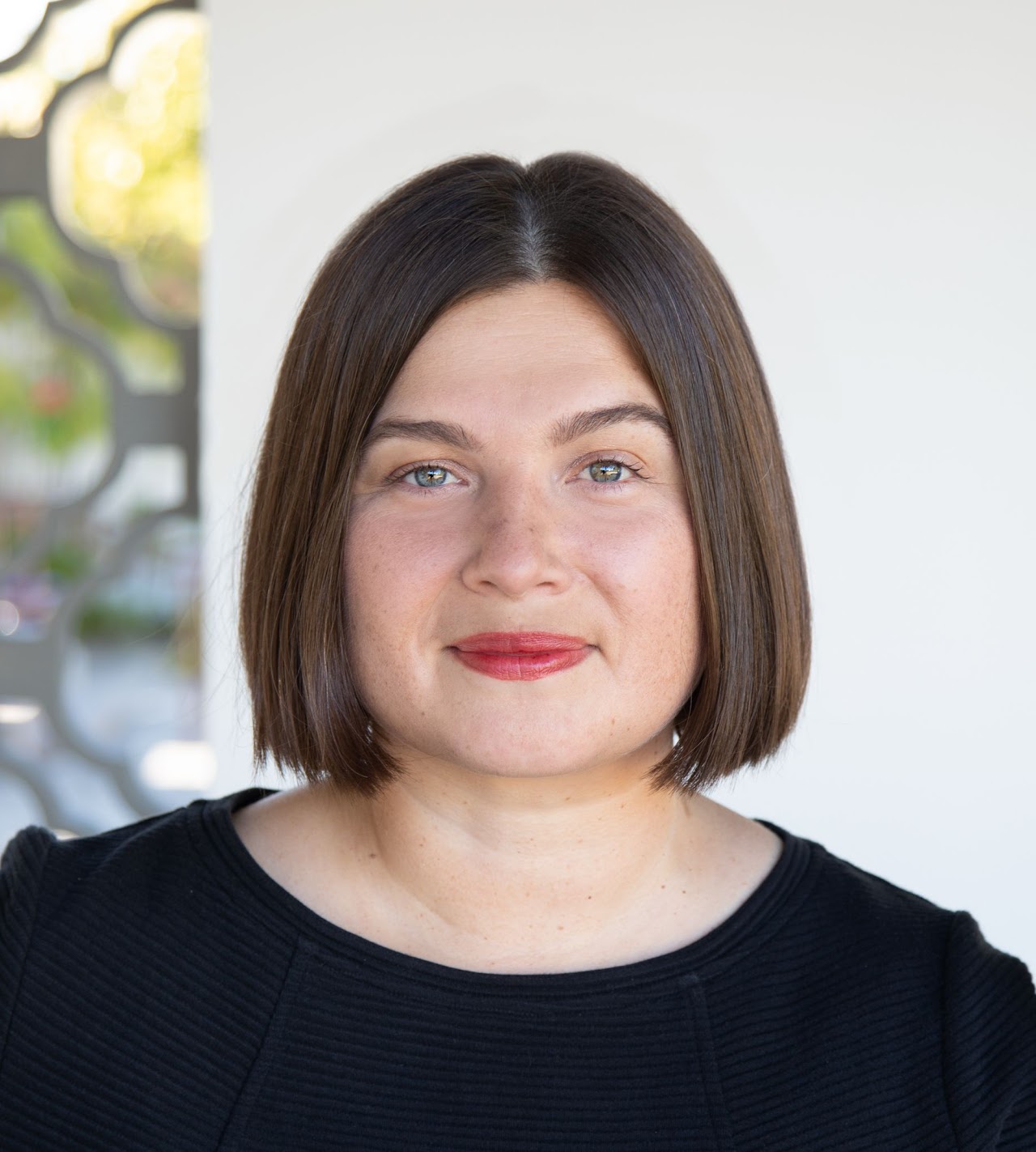 |
CSSS Seminar with Roy Burstein: What is driving low rates of childhood vaccination in DRC? (3/6/24)
|
Join CSSS for a seminar by Roy Burstein on Wednesday, March 6th at 12:30 in 409 Savery Hall and on Zoom (register here). More information coming soon!
(read more)
|
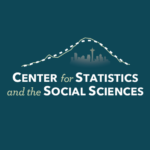 |
Seminar by UW Moris Women’s Center: Budgeting, Spending, & Saving (3/6/24)
|
The UW Moris Women’s Center will host the second seminar of its Financial Empowerment and Literacy Series, co-sponsored by CSDE. The seminar will take place on Wednesday, March 6th from 11:30-1:00 PM in 320 Parrington Hall. Speakers in this series include Rachel McCracken (CFA®, MBA – Team Lead & Wealth Manager), Becky Wilcox (CFA®, MBA, FRM – Wealth Manager), and Larissa Vidal (Wealth Manager). In this third seminar, speakers will discussing different types of investment and allocating financial resources.
(read more)
|
 |
*New* ARPA-H Hits the Ground Running with Sprint for Women’s Health (Proposers day on 3/6/24, Opportunities to be announced)
|
As the first major deliverable of the White House Initiative on Women’s Health Research, the Advanced Research Projects Agency for Health (ARPA-H) announced the ARPA-H Sprint for Women’s Health, which commits $100 million towards transformative research and development in women’s health. ARPA-H will seek funding proposals with revolutionary, evidence-based ideas from a diverse mix of scientific visionaries to improve the lives of millions of women. Awardees will develop unconventional approaches and innovative new avenues to push high-impact biomedical research forward. To learn more and register for an upcoming virtual Proposers’ Day on March 6th @ 11am (ET) visit sprint.investorcatalysthub.org. Awardees and potential additional funding opportunities will be announced later in the year.
(read more)
|
 |
Webinar: Writing About Population Research for Non-scientists (3/7/24)
|
Have you ever wondered how to get your research into the hands of policymakers, or wished your findings were known by a wider audience? PRB and APC are organizing a webinar to highlight ways to expand the reach of your research by distilling your findings into messages and formats tailored for nontechnical audiences, including policymakers and the media. Panelists from Syracuse University and PRB will describe how to write an effective research brief, common pitfalls in writing for nontechnical audiences, and using social media to communicate about your research. The webinar will occur on March 7th from 11:00-12:00 (PT). Register here and learn more in the full story!
(read more)
|
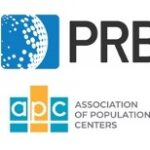 |
NIH Funding for Research on Screening and Treatment for Alcohol, Tobacco, and Other Drugs (Due 3/8/27)
|
The NIH is seeking to fund research to test innovative approaches to implementing SBIRT/P for alcohol, tobacco, and other drugs (ATOD) use and misuse in adult populations that experience health disparities. SBIRT/P, (a term used for purposes of this funding announcement), involves screening individuals for risk of ATOD use and misuse, briefly intervening with a conversation about harmful substance use, and referring individuals for treatment or preventive services, as needed. Proposed research should include prospective tests of SBIRT/P and should leverage collaborations with healthcare and community partners Specific research interests of participating NIH ICOs are detailed within.
(read more)
|
 |
NIH Releases NOSI for Grants Evaluating Digital Technologies and AI Tools (Due: 3/9/24)
|
The NIH is encouraging grant applications to support the evaluation of the utility and validity of digital health and artificial intelligence (AI) tools and technologies in epidemiological, clinical, and intervention research. The intent is to support the addition of new measurement modalities to evaluate existing and recently developed but not yet validated digital health and AI tools such as sensor technologies, smartphone applications, software as a medical device (SaMD), and AI algorithms.
(read more)
|
 |
Call for Submissions: IAPHS’s 2024 Fall Conference (Due 3/10/24)
|
The Interdisciplinary Association for Population Health Science (IAPHS) is accepting panel and abstract submissions from December 1, 2023 to March 10, 2024 for their fall Conference “Tackling declining life expectancy in the US: investigating social drivers and policy solutions”. They are also calling for abstract reviewers and award nominations. Learn more about each of these opportunities in the full story.
(read more)
|
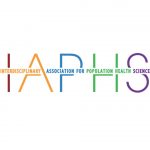 |
*New* Apply Now: Systems Science/Data Science Training to Advance Community Health Research (3/11/24)
Apply for travel funding to attend 2024 IAPHS Conference (Due 3/11/24)
|
IAPHS greatly values and encourages student participation at the annual conference. The 2024 conference in St. Louis, Missouri will offer a variety of sessions of interest to students with lunchtime sessions specifically planned for students. They are pleased to offer travel scholarship funds for a limited number of students to attend the conference. Applications will be accepted beginning January 10, 2024 and will close on March 11, 2024. Learn more here.
(read more)
|
 |
Catalyst Award Competition from the National Academy of Sciences (Due 3/11/24)
|
The National Academy of Sciences has opened their Catalyst Award Competition, which seeks to reward bold, new, potentially transformative ideas to improve the physical, mental, or social well-being and health of people as they age, in a measurable and equitable way. They will issue up to 18 Catalyst Awards in 2024 to U.S.-based innovators. Each Catalyst Award includes a $50,000 cash prize in addition to other benefits. This opportunity was shared with us from UW’s team monitoring corporate and foundation opportunities.
(read more)
|
 |
*New* Two Opportunities for Funding: NIH Firearm Injury and Mortality Prevention Awards (Due 3/15/24)
*New* Save the Date: Virtual Workshop on Climate Change and Human Migration (3/18 and 3/19/24)
|

